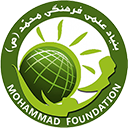In the Name of Allah, the Most Beneficent, the Most Merciful
Taharah and Najasah (for 9 years old and more)
In Islam, there is a difference between something that is unclean and something that is najis. Najis means “ritually unclean”. When our body or clothes become najis, they must be cleaned and made tahir (ritually pure) again before we can perform acts of worship like Salah.
For example, mud or dust or oil may look dirty or feel unclean, but they are not najis. That means if you, for example, have dust on your body or clothes, although it is better to remove it before praying, you can still pray without doing this because it is not najis.
On the other hand, drops of blood may not seem “dirty”, but in Islam, it is considered najis or ritually unclean. If blood falls on your clothes, you must change your clothes or purify them from the blood before you can pray with them. Similarly, if there is blood on the body, it must be washed with enough water to purify the body. Simply wiping it with a tissue or cotton wool is not enough.


Likewise, there is a difference in Islam between something that is clean and something that is tahir. Tahir means “ritually pure”. If a glass of water has a drop of alcohol in it, although it may look clean, it is not tahir. It is najis. On the other hand, your shirt may have mud on it and may not look clean, yet it is still tahir, because mud is not najis.
It is very important that we understand the difference between “tahir and najis” in Islam and “clean and unclean” in the general sense.
Before we can pray, everything around us must be tahir, such as the water we use for wudu, the clothes we wear while praying and the place upon which we perform sajdah.
Najasat al-Ayn
There are ten things that are najis by nature. They do not become tahir, simply by washing them. Some of them can never become tahir no matter what you do. These 10 things are called najis al-ayn (pl. najasat al-ayn). Examples of najasat al-ayn are urine, stool, blood of human, dogs and pigs.
Everything else in the world apart from these 10 things is tahir (ritually pure). However, tahir things can become najis if they come into contact with one of the 10 najasat al-ayn, and there is some wetness or dampness between them. If a thing that is tahir becomes najis, it can be made tahir again.
There are 12 things that can make najis things tahir. These are known as the mutahhirat. The most common of the mutahhirat is water.
Most things which have become najis can be made tahir by washing with water. In the Quran, Allah [SWT] says that He has made water pure and clean so that we may use it to purify ourselves:
وَ يُنَزِّلُ عَلَيْكُمْ مِنَ السَّماءِ ماءً لِيُطَهِّرَكُمْ بِهِ
and He sent down water from the sky to purify you with it [Surah al-Anfal, 8:11]

